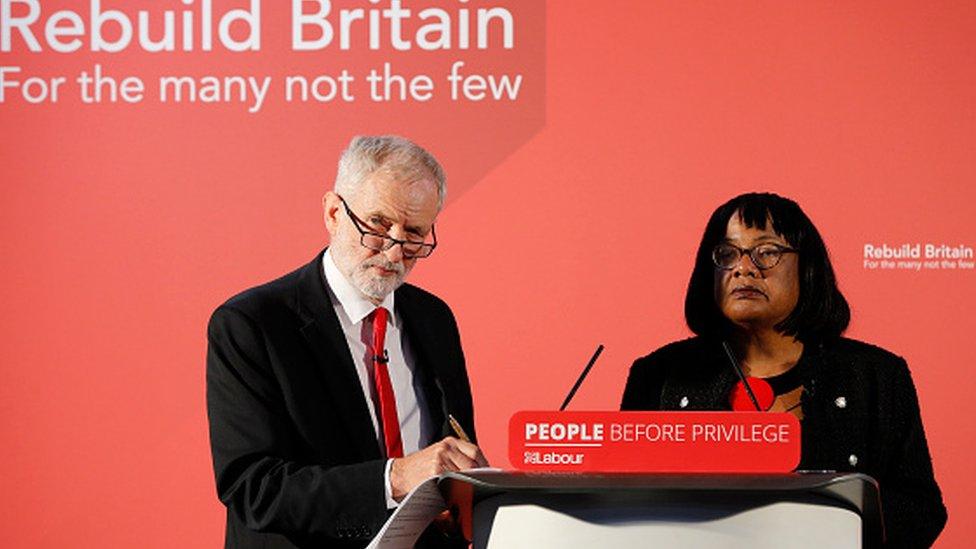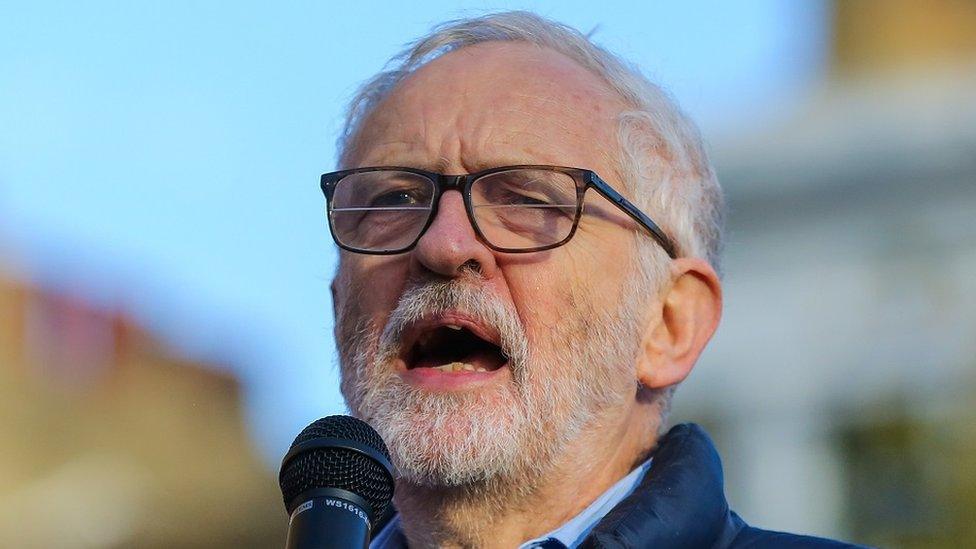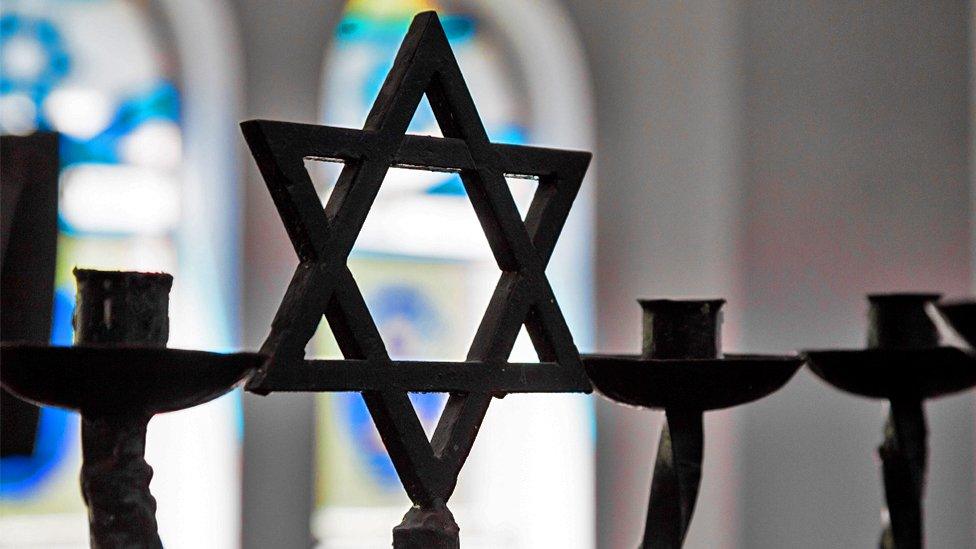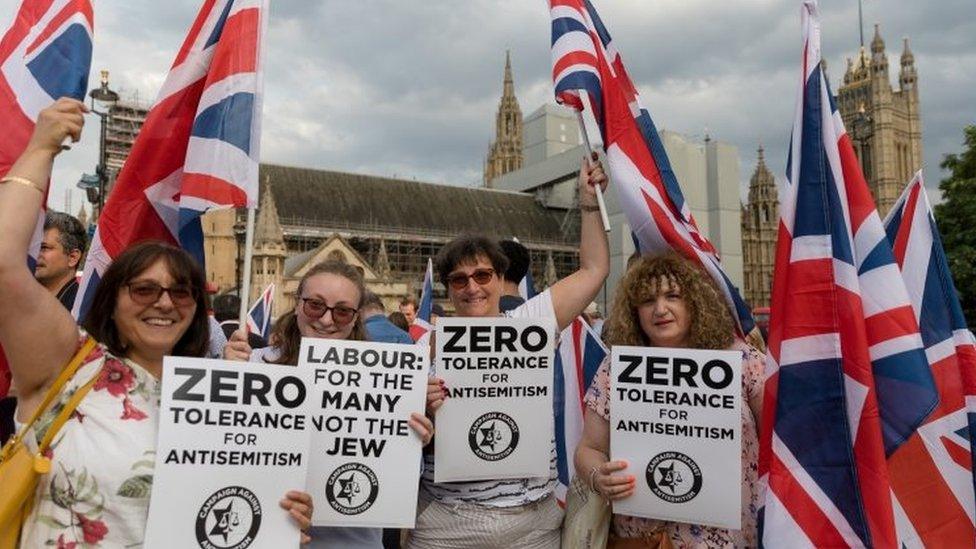Jeremy Corbyn: Let Labour members decide his fate, ally says
- Published

Diane Abbott said she did not think there were any grounds for blocking Mr Corbyn's candidacy
Labour members should have the final say on whether former leader Jeremy Corbyn stands for the party at the next general election, an ally has said.
Former shadow home secretary Diane Abbott said Mr Corbyn "should have due process" after Labour leader Sir Keir Starmer's vow to block his candidacy.
Mr Corbyn condemned Sir Keir's decision as a "flagrant attack" on democracy.
The Islington North MP, who sits as an independent, was suspended as a Labour MP in 2020 in a row over antisemitism.
Sir Keir said the left-wing veteran would not be standing for Labour again after making a speech about the Equality and Human Rights Commission's (EHRC) decision to lift the party out of two years of special measures over its handling of antisemitism under Mr Corbyn.
Allies of Mr Corbyn says he is still likely to seek the Labour nomination in Islington North, forcing party bosses to formally block him from being a candidate.
He is still a Labour Party member but had the whip suspended in Parliament, meaning he sits as an independent MP.
Mr Corbyn has not commented on speculation he might stand against Labour as an independent candidate at the next election - a move that could see him expelled from the party under its rules.
Ms Abbott, a long-time ally who served in Mr Corbyn's shadow cabinet, told the BBC the former Labour leader had been "clear he doesn't want to run an an independent".
"He wants to go before the members and let them vote," the Labour MP for nearby Hackney North and Stoke Newington.
She said she did not think the party had any grounds to block Mr Corbyn's candidacy and if it did, the former Labour leader would have a strong chance of retaining his seat as an independent, given the extent of local support for him.
Tall order
Mr Corbyn has represented Islington North since 1983 and was last re-elected in 2019 with a huge majority of 26,188.
But party sources say the odds of him getting on to Labour's shortlist of candidates for the constituency are stacked against him.
Usually, branches of a constituency Labour Party consult their members and vote on an MP's reselection, in what is known as a trigger ballot.
Those with knowledge of the rules say, because Mr Corbyn has been suspended as a Labour MP, the party's usual process of selecting parliamentary candidates will not apply.
They suggest that the party's governing national executive, the NEC, could interview Corbyn to assess whether he is a suitable candidate. A panel of NEC members could then undertake a "due diligence" test to determine whether there is grounds for blocking his candidacy.
Labour sources suggest Mr Corbyn may fail the vetting process because of his past remarks on antisemitism.
Sir Keir Starmer: The Labour Party has changed
Mr Corbyn was suspended as a Labour MP by Sir Keir for saying, in his response to the 2020 EHRC report, that the scale of antisemitism within Labour had been "dramatically overstated" by his opponents and much of the media.
He was readmitted to the wider party after saying concerns about antisemitism had been neither "exaggerated nor overstated", but he remains barred from representing Labour in Parliament.
Labour's chief whip has asked Mr Corbyn to "unequivocally, unambiguously and without reservation" apologise for claiming that the scale of antisemitism in the party was overstated.
Unless Mr Corbyn issues such an apology, "it's essentially impossible for him to progress" as a candidate, one party source said.
Party tensions
Ms Abbott said party bosses could "devise some spurious grounds" for blocking Mr Corbyn's candidacy.
"He had the whip withdrawn after what he said after the EHRC report was released," Ms Abbott said. "I think he's withdrawn those remarks now. So they would have to find something pretty spurious."
Another key ally, former shadow chancellor John McDonnell, said he thought barring Mr Corbyn from standing as a Labour candidate was "a mistake".
He said Sir Keir made a commitment to uphold democracy in the party and urged him to "stick to that promise otherwise it will open up a vulnerability that the Tories will use".
But Labour's shadow home secretary Yvette Cooper has paid tribute to Sir Keir for making clear what standards needed to be met in order to stand as a Labour candidate.
Taking questions from reporters after a speech at the Institute for Government think tank, Ms Cooper was asked about Sir Keir's decision to block Mr Corbyn's candidacy.
Ms Cooper said Labour had "changed" under Sir Keir's leadership and he had fulfilled his pledge to "tackle the stain of antisemitism" within the party.
Related topics
- Published15 February 2023

- Published29 October 2020

- Published18 November 2020
